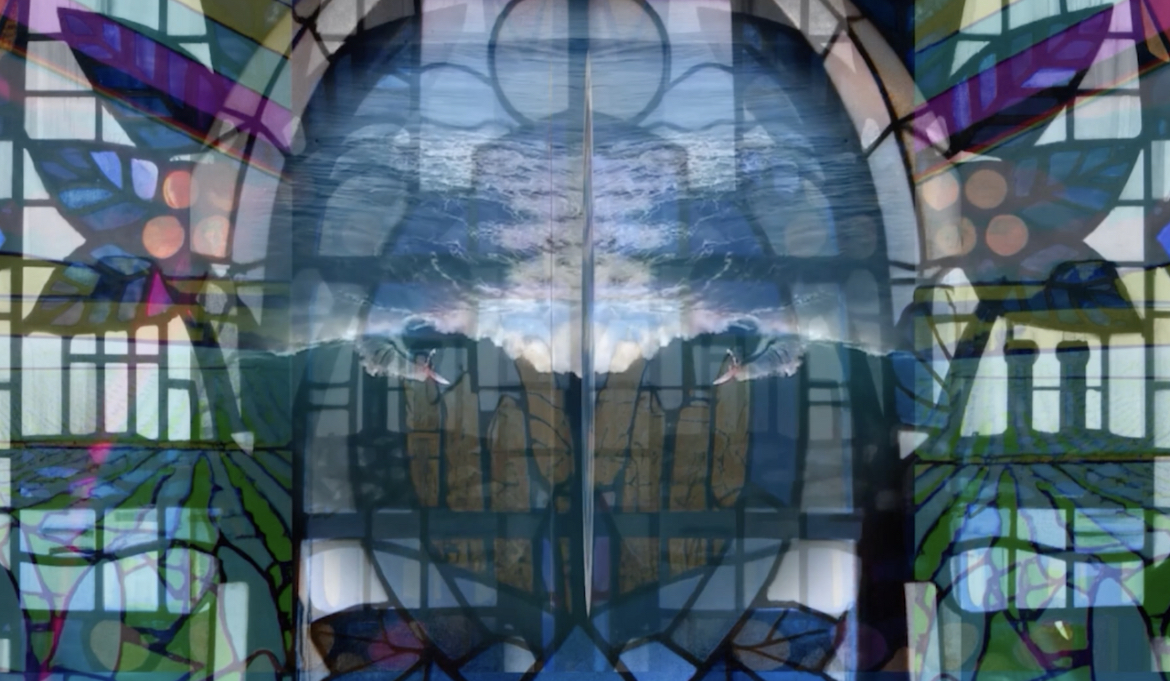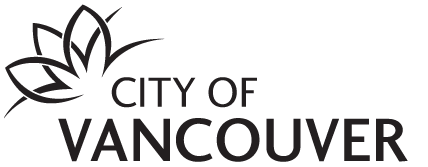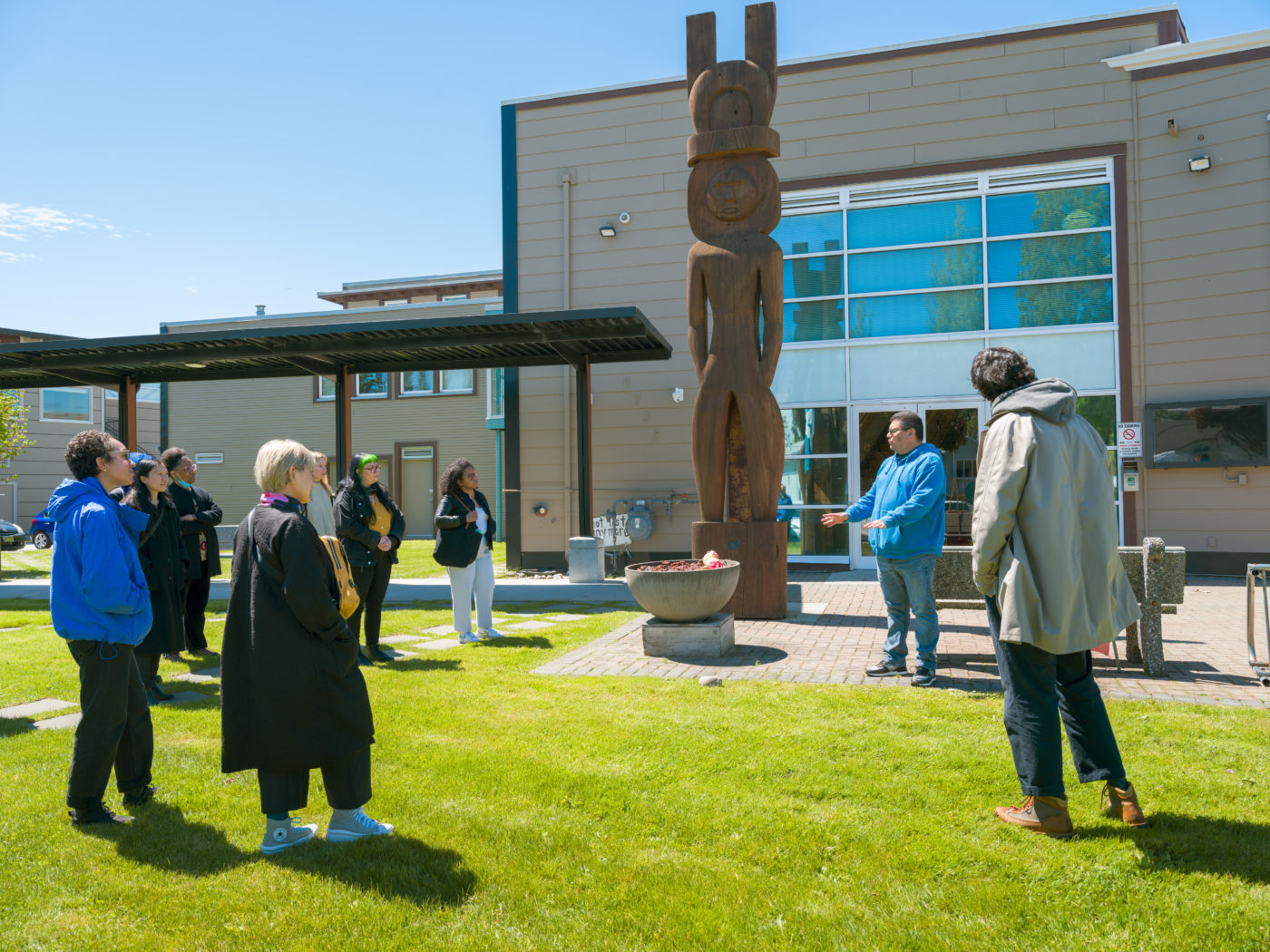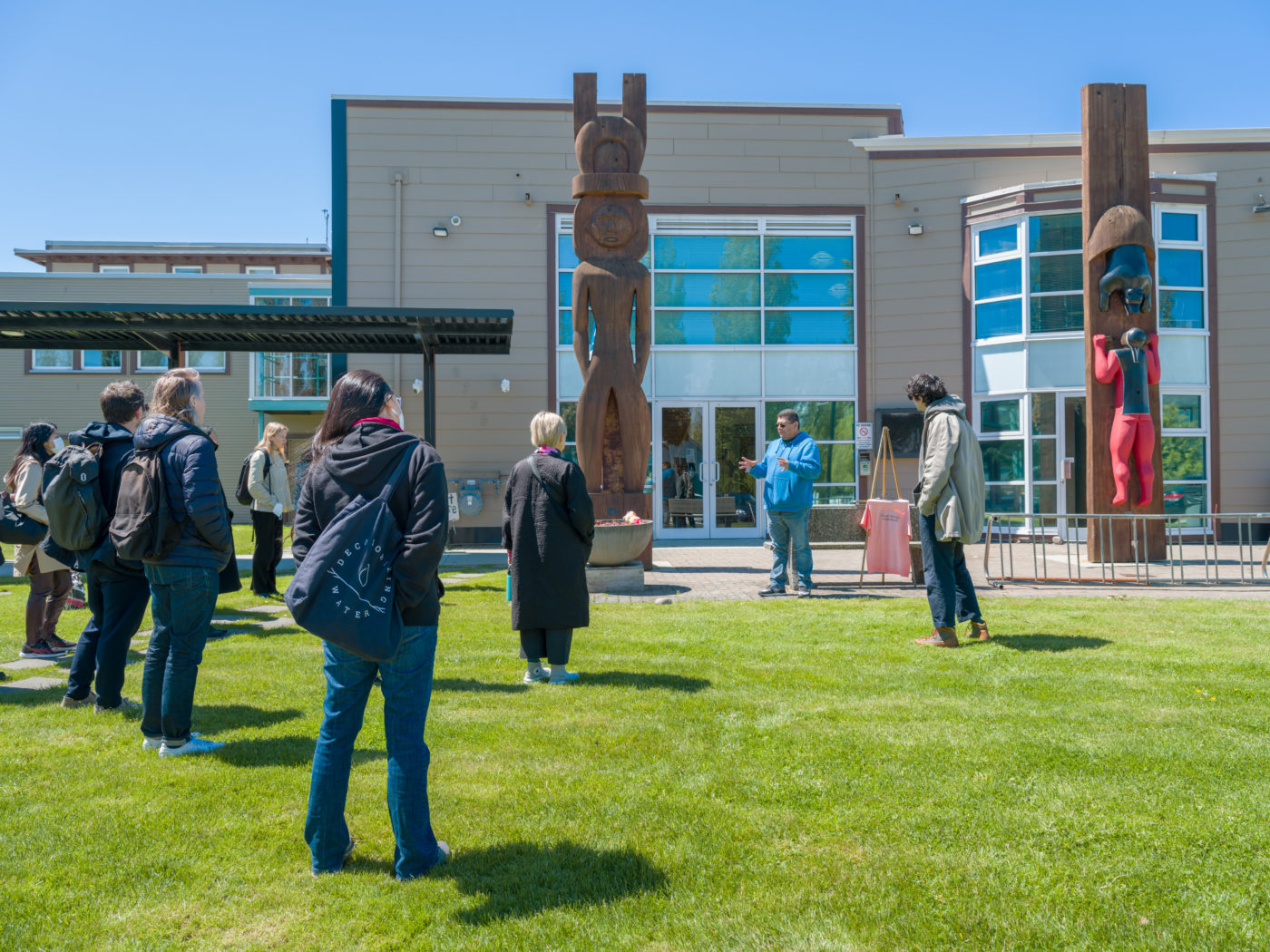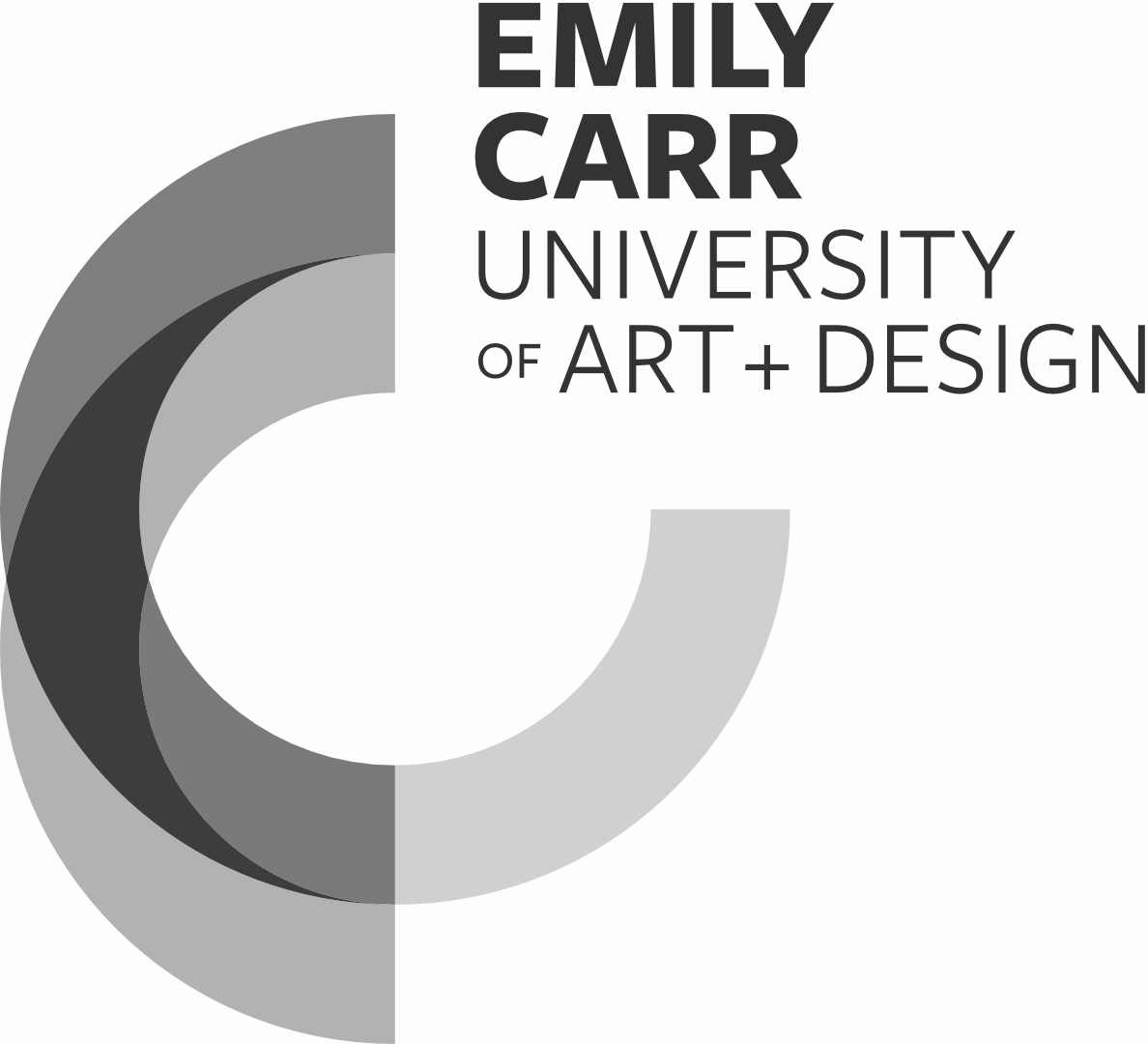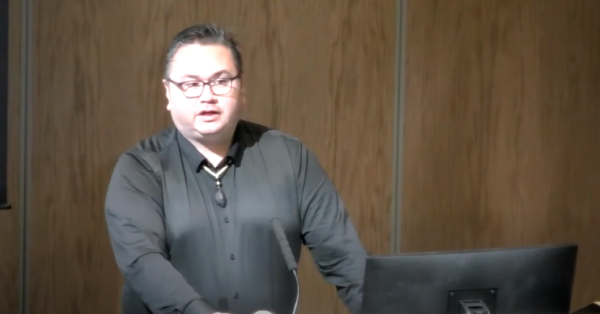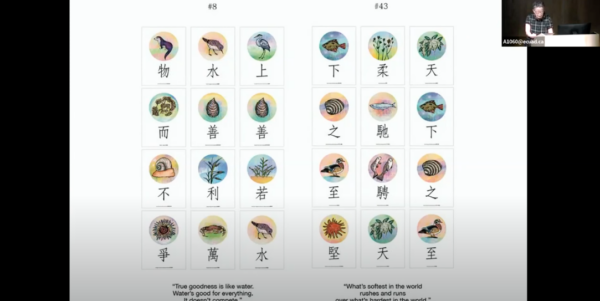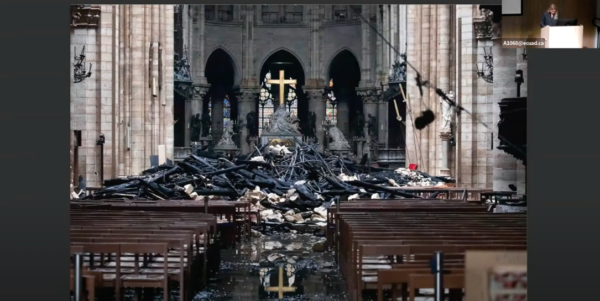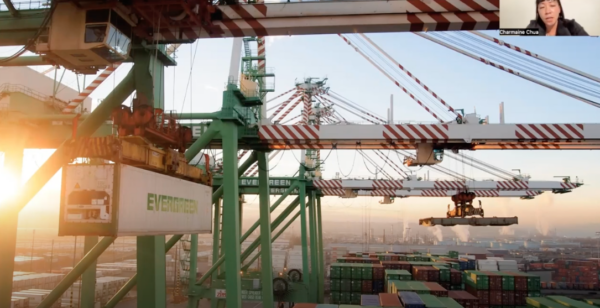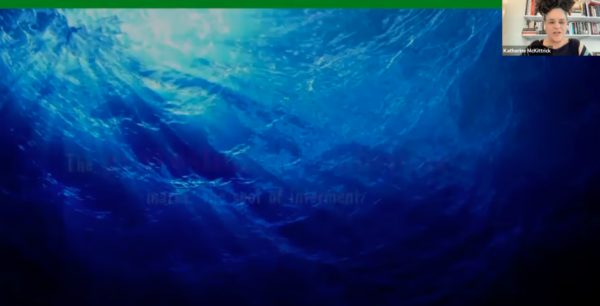Denise Ryner
is outgoing Director/Curator of Or Gallery, Vancouver (2017-2022). Her current curatorial, research and writing interests include place-as-agent in exhibition-making and the cultural production of transnational counter flows of the 19th and 20th centuries. In 2019 she co-organized the Bodies, Borders, Fields symposium with Yaniya Lee to examine the visibility of Blackness as a context for contemporary art histories. Independent curatorial projects include: Common Cause: before and beyond the global (Mercer Union/Toronto, 2018), Bodies of Fact: The Archive from Witness to Voice (HKW/Berlin, 2017), Harbour/Haven, in collaboration with Tonel (‘thirstDays’ VIVO Media Arts/Vancouver, 2016), Interim Measures (8-11 Project Space, Toronto, 2015). She has written for Canadian Art, Blackflash, C Mag, FUSE and guest co-edited the Canadian Art Fall 2020 Chroma issue with Yaniya Lee. Ryner is currently working on the exhibition, symposium and publication project, Ceremony: Cosmogony and Catastrophe to be presented later this year at the Haus der Kulturen der Welt, Berlin, which she is co-curating alongside Anselm Franke, Claire Tancons, Elisa Giuliano and Zairong Xiang.
Dr. Jamie Hilder
is an interdisciplinary artist and critic who lives on the unceded territories of the Tsleil’waututh, Musqueam, and Squamish peoples. His book Designed Words for a Designed World examines the International Concrete Poetry Movement alongside the emergence of various globalizing technologies in the mid-20th century. An Assistant Professor of Critical and Cultural Studies at Emily Carr University, he has exhibited and published work internationally, and actively maintains a dormant research collaboration with sound artist Brady Cranfield.
Jordan Wilson
is an emerging curator and scholar and is currently a Ph.D. student in Anthropology at New York University. He is a member of the Musqueam First Nation, in what is now Vancouver, British Columbia, and holds an MA in Anthropology and a BA in Indigenous Studies, both obtained at the University of British Columbia (UBC). Prior to starting graduate studies, Wilson was a Curatorial Intern at UBC’s Morris and Helen Belkin Art Gallery (2017-2018), where he contributed to the exhibition Beginning with the Seventies: Collective Acts (2018). Wilson’s current research examines the politics of Indigenous language revitalization, the legacies of anthropological collecting, the practices of collecting institutions, as well as questions concerning Indigenous sovereignty and settler colonialism. His curatorial practice often involves considering the forms of relationships contemporary Indigenous peoples maintain with their ancestral art, material culture, and immaterial heritage currently held by colonial institutions, and the potential of Indigenous art in the public realm. This work is informed by desires for structural change in institutions with regard to Indigenous representation and engagement, as well as a commitment to the well-being of his home community. Wilson was a co-curator of c̓əsnaʔəm, the city before the city (2015), an exhibition developed collaboratively with Musqueam; and the long-term exhibition In a Different Light: Reflecting on Northwest Coast Art (2017) at the UBC Museum of Anthropology. His writing has appeared in Inuit Art Quarterly, The Capilano Review, Biography: An Interdisciplinary Quarterly, and Museum Worlds. He is also a writer and co-editor of the forthcoming book Where the Power Is: Indigenous Perspectives on Northwest Coast Art (Fall 2021).
Dr. Anselm Franke
is a curator and writer. He is Head of the Department of Visual Arts and Film at HKW Berlin, where he co-curated the multi-year program “The Anthropocene Project” (2013-2014) and “Kanon-Fragen (2016-2019), and conceived numerous exhibitions such as recently “Neolithic Childhood. Art in a False Present ca. 1930” (together with Tom Holert) and “Parapolitics. Cultural Freedom and the Cold War” (with Paz Guevara, Nida Ghouse and Antonia Majaca). Publications include “2 or 3 Tigers” (2017, with Hyunjin Kim), “Forensis” (2015, with Eyal Weizman et. al.) and “Animism” (2010). Franke received his doctorate from Goldsmiths College, London.
Terri-Lynn Williams-Davidson, Q.C.
Citizen of the Haida Nation off the west coast of Canada, Terri-Lynn is a musician, author, activist, artist, scholar and lawyer who has dedicated herself to the continuation of Haida language and culture. She is the founder of Raven Calling Productions, Principal Lawyer of White Raven Law Corporation and is General Counsel to the Haida Nation. She also released the book “Out of Concealment: Female Supernatural Beings of Haida Gwaii” and was co-author of the best-selling children’s book “Magical Beings of Haida Gwaii”, the associated Activity Book and the “Haida Box of Knowledge: Guidance from Supernatural Sisters”.
Working on both Indigenous-environmental law and art, she is recognized as a vital keeper of Haida traditions. Deep on the front lines of Indigenous Rights, she strives to open new vistas to her audiences rooted in Indigenous world views, Haida language and laws, music and oral traditions, and branches out to explore their relevance to contemporary society. In her pursuit to perpetuate Haida’s culture, her practice blends modern media and ancient traditions to address contemporary challenges. Her multiple award-winning career includes appointed as Queen’s Counsel (2021), recognition on the Maclean’s 2021 Power List and as one of Canada’s top most influential lawyers (2020), a “Keepers of Traditions” Award, “Best Female Traditional/Cultural Roots Album”, and “Best Female Artist” by Canadian Aboriginal Music Awards and solo exhibitions at the Comox Valley Art Gallery (2021), the on Bill Reid Gallery (2020) and Haida Gwaii Museum (2017), and performances at the Sid Williams Theatre (2021), the Ryga Festival (2019), the Metropolitan Museum (2018), Genesis Theatre (2018), the Surrey Canada Day Celebration(2018) and many others.”
Morgan Guerin
secəlenəxʷ, Morgan Guerin, was born and raised at Musqueam. A lifetime of fishing has raised his awareness of the connections between the Musqueam people, their history, and the natural resources of their territories. Morgan has worked as a Musqueam Fisheries Officer for over twenty years and has served as an elected Musqueam councillor. Recently, he served as a community curator for the revitalization of the American Museum of Natural History’s Northwest Coast Hall.
Dr. Marianne Nicolson
(‘tayagila’ogwa), is an artist-activist of Scottish and Dzawada’enuxw First Nations descent. Dzawada’enuxw People are a member tribe of the Kwakwaka’wakw Nations of the Pacific Northwest Coast. She is trained in both traditional Kwakwaka’wakw forms and culture and contemporary gallery and museum-based practice. She holds a Bachelor of Fine Arts from the Emily Carr University of Art and Design (1996), a Master of Fine Arts (2000) from the University of Victoria, as well as a Master of Arts (2005) in Linguistics and Anthropology and a PhD (2013) in Linguistics and Anthropology with a focus on space as expressed in the Kwak’wala language.
Nicolson works as a Kwakwaka’wakw cultural researcher and historian, as well as an advocate for Indigenous land rights. Her practice is multi-disciplinary encompassing photography, painting, carving, video, installation, monumental public art, writing and speaking. All her work is political in nature and seeks to uphold Kwakwaka’wakw traditional philosophy and worldview through contemporary mediums and technology. Exhibitions include the 17th Biennale of Sydney, Australia; The Vancouver Art Gallery, The National Museum of the American Indian in New York, Nuit Blanche in Toronto, Ontario, Museum Arnhem, Netherlands and many others. Major monumental public artworks are situated in Vancouver International Airport, the Canadian Embassy in Amman, Jordan and the Canadian Embassy in Paris, France.
Her practice engages with issues of Aboriginal histories and politics arising from a passionate involvement in cultural revitalization and sustainability.
Dr. Renisa Mawani
is Professor of Sociology at the University of British Columbia which is located on the unceded territories of the Musqueam peoples. She works in the fields of critical theory and colonial legal history and has published widely on law, colonialism, migration, and legal geography. She is the author of two books, Colonial Proximities (2009) and Across Oceans of Law (2018), which was shortlisted for the UK Sociolegal Studies Association’s History and Theory Book Award and was the winner of the Outstanding Contribution to History book prize from the Association of Asian American Studies. With Iza Hussin, she is co-editor of “The Travels of Law: Indian Ocean Itineraries” published in Law and History Review (2014).
Her research in colonial legal history questions the expansion and evolution of law over natural spaces and elements and examines the role of law in colonial processes of state racism, including efforts to dispossess Indigenous peoples from their lands and waterways, restrict and prohibit Chinese and South Asian migration, and the subsequent social, cultural and environmental impacts of colonial legal violence.
Dr. Alice Te Punga Somerville
(Māori – Te Āti Awa, Taranaki) is a scholar, poet and irredentist. At its heart, her research and teaching engage texts to de-centre colonialism by centering Indigenous expansiveness. Her MA (Auckland) and PhD (Cornell) focused on Māori written literatures. As she sought broader contexts for thinking about the writing of her own community, she developed a twin interest and expertise in Indigenous studies and Pacific studies. Dr. Te Punga Somerville’s current research project focuses on published writing by Indigenous people from New Zealand, Australia, Hawai’i, and Fiji between 1900-1975. She is completing a book about this research called Writing the New World. She also produced a podcast of the same name, which profiles researchers and ideas connected to the project.
She is the author of Once Were Pacific: Maori connections to Oceania (2012) and 250 Ways to Write an Essay about Captain Cook (2020), the former of which won Best First Book from the Native American & Indigenous Studies Association. Her forthcoming collection of poetry is called Always Italicise: how to write while colonised (Auckland University Press).
Dr. Karamia Müller
was born in Honiara, Solomon Islands and is of Samoan heritage. She is a Pacific academic specialising in indigenous space concepts. Currently a Lecturer at the School of Architecture and Planning (SoAP), Faculty of Creative Arts and Industries at the University of Auckland, her research specialises in the meaningful ‘indigenisation’ of creative practices and design methodologies invested in building futures resistant to inequality. She is currently Co-Director of the Architectural Exhibitions Research Hub and the Māori and Pacific Research Hub based at SoAP.
Her research also explores contemporary Pacific architecture and art, women’s architectural and art production in the region, and the use of social media and other online digital technologies by Pacific peoples in the creation of digital space. In particular, she is interested in how these disciplines constitute and inform the lived experiences of Pacific Diaspora.
Dr. Quito Swan
native to the island of Bermuda, is a professor and award-winning historian of Black internationalism, Black Power, and the Black Pacific and a scholar of race, public policy, and the African Diaspora. Currently with Indiana University Bloomington as Professor of African American and African Diaspora Studies, Dr. Swan has also published three monographs: Black Power in Bermuda (Palgrave Macmillan, 2010), Pauulu’s Diaspora: Black Internationalism and Environmental Justice (University Press of Florida, 2020), and Pasifika Black: Oceania, Anticolonialism, and the African World (New York University Press, 2022).
In his work, Swan explores the historical and contemporary relationships between Black cultures and social movements across the oceans, while addressing issues such as historical mapping of Black culture, anti-colonialism movements, racially-inclusive education, civil and human rights, immigration, climate change, gender politics, sustainable development among many others.
Dr. Rita Wong
An Associate Professor in Critical and Cultural Studies, Rita Wong investigates the relationships between contemporary poetics, water justice, ecology, and decolonization. She has co-edited an anthology with Dorothy Christian entitled Downstream: Reimagining Water, based on a gathering organized with support from the Social Sciences and Humanities Research Council of Canada. A recipient of the Dorothy Livesay Poetry Prize and the Asian Canadian Writers’ Workshop Emerging Writer Award, Wong is the author of beholden (Talonbooks, 2018, with Fred Wah), undercurrent (Nightwood, 2015), perpetual (Nightwood, 2015, with Cindy Mochizuki), sybil unrest (Line Books, 2008, with Larissa Lai), forage (Nightwood, short-listed for the 2008 Asian American Literary Award for Poetry, winner of Canada Reads Poetry 2011), and monkeypuzzle (Press Gang, 1998). Wong works to support Indigenous communities’ efforts towards justice and health for water, having witnessed such work at the Peace River, the Wedzin Kwa, the Columbia River, the Fraser River, the Salish Sea, and the Arctic Ocean watershed. She understands that when these waterways are healthy, life (including people) will be healthy too, and that we cannot afford to endanger and pollute the waters that sustain our lives.
LAIWAN
is an interdisciplinary artist, writer and educator with a wide-ranging practice based in poetics and philosophy. Born in Zimbabwe of Chinese parents, her family immigrated to Canada in 1977 to leave the war in Rhodesia. Her art training began at the Emily Carr College of Art & Design (1983), and she returned to academia to receive an MFA from Simon Fraser University School for Contemporary Arts (1999). Recipient of numerous awards, including the 2021 Emily Award from Emily Carr University, recent Canada Council and BC Arts Council Awards, and the 2008 Vancouver Queer Media Artist Award, Laiwan has served on numerous arts juries, exhibits regularly, curates projects in Canada, the US, and Zimbabwe, is published in anthologies and journals, and is a cultural activist.
Laiwan has been investigating colonialism, with aim toward a decoloniality, since the late 1980s. She also has been exploring embodiment since 2000, through performativity, audio, music, improvisation, and varieties of media, along with bodily and emotional ways of knowing, so as to unravel and engage presence.
Dr. Ayesha Hameed
explores the legacies of indentureship and slavery through the figures of the Atlantic and Indian Oceans. Her Afrofuturist approach combines performance, sound essays, videos, and lectures. Hameed examines the mnemonic power of these media – their capacity to transform the body into a body that remembers. The motifs of water, borders, and displacement, recurrent in her work, offer a reflection on migration stories and materialities, and, more broadly, on the relations between human beings and what they imagine as nature. Recent exhibitions include Liverpool Biennale (2021), Gothenburg Biennale (2019, 21), Lubumbashi Biennale (2019) and Dakar Biennale (2018). She is co-editor of Futures and Fictions (Repeater 2017) and co-author of Visual Cultures as Time Travel (Sternberg/MIT 2021). She is currently a Senior Lecturer in Visual Cultures at Goldsmiths University of London and a Kone Foundation Research Fellow in the Arts at the Helsinki Collegium for Advanced Studies.
Dr. Thea Quiray Tagle
is a Filipinx femme writer, scholar, teacher and curator whose research broadly investigates photography, socially engaged art and site-specific performance; visual cultures of violence and waste; urban planning and the environment; and grassroots responses to political crises and ecological collapse in the expanded Pacific Rim. Thea is a transdisciplinary feminist scholar and is an Assistant Professor in the Department of Women’s, Gender, and Sexuality Studies and the Program in Critical Ethnic & Community Studies at the University of Massachusetts Boston. She received her PhD in Ethnic Studies from the University of California, San Diego, and holds a BA in Political Science and Human Rights Studies from Barnard College, Columbia University. She was the Chancellor’s Postdoctoral Research Associate in Asian American Studies at the University of Illinois at Urbana-Champaign from 2015-2016. Thea currently sits on the editorial board of Signs: Journal of Women and Culture in Society, and is on the board of the Consortium for Graduate Studies in Gender, Culture, Women & Society (GCWS).
Dr. Ayasha Guerin
is an interdisciplinary artist, curator, and professor of Black Diaspora Studies in the department of English at the University of British Columbia. Dr. Guerin received her PhD in 2020 from New York University’s American Studies program. Her first book project, Making Zone-A: Nature, Race and Resilience on New York’s Most Vulnerable Shores, explores Black social life and ecology in the city’s floodplain from the 17th-19th centuries. Tracing how colonial capitalism has cultivated a hierarchy of racial difference on urban landfill, it considers how activism on the waterfront has been shaped by diasporic relationships and interspecies entanglements. Her second project is focused on transnational Black feminism and arts activism in Berlin, Germany.
Dr. Charmaine Chua
is Assistant Professor of Global Studies at the University of California, Santa Barbara. Her interdisciplinary scholarly and political work is on logistics, racial capitalism and terrains of internationalist struggle under the U.S. empire. Her work has been published in venues such as Environment and Planning D, Theory and Event, Antipode, The Boston Review, and The Nation, among other venues. She is currently completing a book manuscript titled Logistics Leviathan: Fast Circulation, Slow Violence, and the Transpacific Empire of capital. She organizes with Amazonians United, Cops off Campus, and the Abolition Journal collective.
Dr. Lilian Yamamoto
has a PhD in international law from Kanagawa University, Japan. She is a South American Network for Environmental Migrations’ researcher and lecturer at the Graduate and Undergraduate Program in Japanese Language, Literature and Culture at the University of São Paulo, Brazil. She is co-author, with Miguel Estaban, of the book Atoll island states and international law-climate change displacement and sovereignty (2014).
Dr. Geoff Mann
works at Simon Fraser University, where he directs the Centre for Global Political Economy. His most recent books are Climate Leviathan: A Political Theory of Our Planetary Future (with Joel Wainwright Verso 2018) and In the Long Run We Are All Dead: Keynesianism, Political Economy and Revolution (Verso 2017).
Georgina Hill
is an artist born in the UK, based in London. Her work is concerned with material encounters of social structures. Part document, part stagecraft, she works in forms of installation, video, and text. With postgraduate study in English Literature at University College London, she studied in the class of Hito Steyerl at the University of Fine Arts Berlin, subsequently graduating from Goldsmiths University, London with an MFA. She has collaborated with INLAND Campo Adentro on a number of occasions, working on topics of coastal economies and alternative curriculum modelling. She will present solo exhibitions in 2022 at fluent in Santander and Galerie Charraudeau in Paris, and will publish an artist’s book with Éditions Lutanie. Her work has been shown internationally at the Arnis Residency (Germany), Seoul Biennale for Architecture and Urbanism (South Korea), Bulegoa z/b (Spain), Nordic Winter Symposium, Nida Art Colony (Lithuania), Art Night (UK), Museum of Photography (Germany), and the Swiss Church (London), among others.
Jane Jin Kaisen
(born 1980 in Jeju Island, lives in Copenhagen) is a visual artist, filmmaker, and Professor at the School of Media Arts, The Royal Danish Academy of Fine Arts. Kaisen’s artistic practice is informed by extensive interdisciplinary research and engagement with diverse communities. She is known for her visually striking, multilayered, performative, poetic, and multi-voiced feminist works through which past and present are brought into relation. Engaging topics such as memory, migration, borders, and translation, she activates the field where lived experience and embodied knowledge intersect with larger political histories. Her works negotiate and mediate the means of representation, resistance, and reconciliation, thus forming alternative genealogies and sites of collective emergence.
Kaisen represented Korea at the 58th Venice Biennale with the film installation Community of Parting (2019) alongside artists Hwayeon Nam and siren eun young jeong in the exhibition History Has Failed Us, but No Matter curated by Hyunjin Kim. She was awarded “Exhibition of the Year 2020” by AICA – International Association of Art Critics, Denmark for the exhibition Community of Parting at Kunsthal Charlottenborg and awarded the Montana ENTERPRIZE at Kunsthallen Brandts in Denmark in 2011. Kaisen has participated in the biennials of Liverpool, Gwangju, Anren, Jeju, among others. Recent solo exhibitions include Parallax Conjunctures at Museum of Contemporary Art Detroit (2021), Community of Parting at Art Sonje Center (2021) and Kunsthal Charlottenborg (2020), and Of Specters or Returns, Gallery damdam (2020).
M. NourbeSe Philip
Born in Tobago, Philip moved to Canada in the 1960s and completed a Masters degree in political science followed by a law degree at the University of Western Ontario (now Western University). She practiced law in Toronto for seven years, writing and publishing poetry in her spare time, until she started writing full-time in 1983. Philip released her first three poetry collections in the 1980s: Thorns, Salmon Courage and She Tries Her Tongue, Her Silence Softly Breaks. The books explored her identity as a Caribbean and Canadian woman, the complicated beauty of language and experiences of racism and exile as a Black woman in Canada.
Her most widely known poetry collection, Zong! was published in 2008. The book tells the true story of a slave ship from November 1781 on which 150 Africans were drowned on captain’s orders so the ship’s owners could collect insurance money. Philip examined the legal text from the case to create a collection that mourns, sings, chants and curses. Philip’s international honours include the Casa de las Americas Prize in 1988, the Tradewinds Collective Prize in 1988, a Guggenheim Fellowship in 1990, a MacDowell Fellowship in 1991 and the PEN/Nabokov Prize for International Literature in 2020. In 2021 Philip was awarded the 2021 Arts Molson Prize, a lifetime achievement award annually given by the Canada Council for the Arts.
Dr. Katherine McKittrick
is Professor of Gender Studies and Canada Research Chair in Black Studies at Queen’s University in Kingston, Canada. She authored Demonic Grounds: Black Women and the Cartographies of Struggle (UMP, 2006) and edited and contributed to Sylvia Wynter: On Being Human as Praxis (DUP, 2015). Her most recent monograph, Dear Science and Other Stories (DUP, 2021) is an exploration of black methodologies.
Hamedine Kane
is a Senegalese and Mauritanian artist and director, lives and works between Brussels and Dakar. Through his practice, Kane frequents borders, not as signs and factors of impossibility, but as places of passage and transformation, as a central element in the conception of itinerant identity.
Lucas Balthazar (Research Assistant)
As a graduate in Digital Media and Systems from Universidade Federal do Ceará, in Brazil, Lucas hosts a multidisciplinary background that explores many forms of digital media, such as graphic design, web design, video, photography and interactive installations. Recently, Lucas joined Emily Carr University of Arts + Design in Vancouver, BC to pursue his second bachelor’s degree, this time in Industrial Design.
Zoë Grace Anne Laycock (Research Assistant)
Zoë is a graduate of the BFA Visual Arts major and SPACE (Social Practice & Community Engagement) minor, going into the MFA program later this year at Emily Carr University. She is Anishinaabe Métis, born and raised in Métis Region 3. Zoë’s work is influenced by her experience and upbringing with strong cultural connection, she values community building, cultural accessibility, preservation, and activation. . She works with involving the natural and supernatural world, archipelagic theory, reflection of ritual, as well as introspected works on home, diaspora and identity.
Though multidisciplinary, her work scales from small, intimate traditionally beaded works to larger scale installations — all very much informed by indigenous traditional language, materials, teachings, world view and reciprocity while navigating current mainstream society with these values.
Reiko Inouye (Research Assistant)
Reiko Inouye is an early emerging artist, curator, organizer, and settler guest on the traditional, ancestral, and unceded lands of the xwmə0–kwəy’əm (Musqueam), Sḵwx̱wú7mesh (Squamish), and Səl̓ílwətaʔ/Selilwitulh (Tsleil-Waututh) Nations. They recently received their Bachelor of Arts in Interdisciplinary Studies from the University British Columbia in 2021, was nominated for the BMO 1st Art! Competition, and was the 2020-21 Director of the student-run Hatch Art Gallery on UBC Vancouver’s campus. Their practice often concerns itself with theories of queer world-building, space-making, performativity, and movement. The relationality and space between (objects/people/places) is what interests Reiko the most, and the modes through which communication occurs. Her most recent research has explored concepts of correspondence, lineages, personal ephemera, and archives.
Katrina Goetjen (Research Assistant)
is an early career arts-administrator and researcher based on the unceded, ancestral territories of the Coast Salish People, including the xwmə0–kwəy’əm (Musqueam), Sḵwx̱wú7mesh (Squamish), and Səl̓ílwətaʔ/Selilwitulh (Tsleil-Waututh). Born on her family ranch outside of Calgary, Alberta, on Treaty 7 Territory, she has found this setting began an early interest in photography and sculpting. Her current research focuses on intersecting histories of family and the Souris Valley Mental Health Hospital, and she holds a practice in graphic design and digital imaging.
